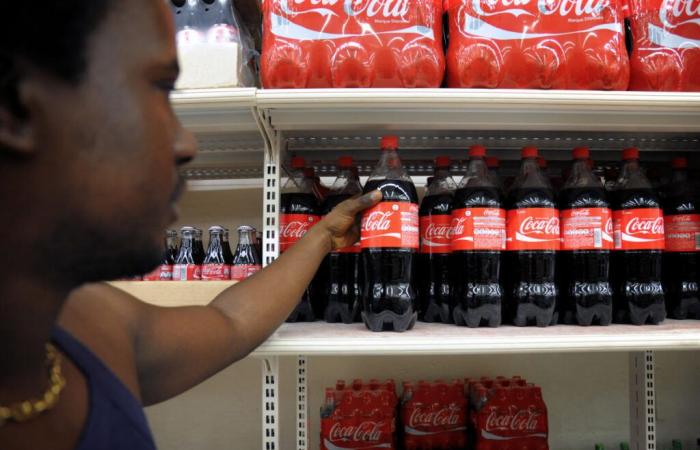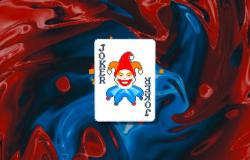
Fans of sugary drinks, watch out for your wallet. The soda tax, already in force since 2012, could well increase significantly, which should have a significant impact on the price of products.
The senators voted Thursday, November 21 for an increase in this tax, reports Public Senate, which goes up to a tripling of its value for certain products containing the most added sugars: colas, fruit drinks, cocoa-based, coffee, tea or syrup, lemonades, tonics, but also certain drinks made from animal or vegetable milk.
A sharp increase for the sweetest products
While the National Assembly had already recorded an increase, the senators went further with an increase in the scale of the first tranche, and especially a very strong increase for the tranche of products with the most added sugars.
Concretely, for the first tranche, that is to say below 5 kg of added sugar per hectoliter, or 5g per 100g, manufacturers will have to pay a tax of 4 euros per hectoliter, compared to 3.79 euros on average with the current price, i.e. 4 cents compared to 3.79 cents per liter previously.
Coca-Cola, Lipton, Schweppes… these products concerned
The Lipton with peach flavored iced tea contains 3g of sugars per 100g, so it is located in the first slice. If the senators' proposal is adopted, the tax will increase from 3.79 cents to 4 cents per liter, for a product that costs around 1.20 euros per liter in supermarkets.
For the second, intermediate bracket, the tax almost triples. It increases to 21 euros for drinks containing between 5 and 8 kg of added sugar per hectoliter, compared to 7.30 euros on average currently, or 21 cents compared to 7.3 cents per liter currently.
The SchweppesTonic or citrus flavor, contains 5.8g of sugar per 100g. From 7.3 cents, the tax will increase to 21 cents per liter for a product which currently costs around 1.20 euros per liter in supermarkets.
The syrup Tesseire with grenadine contains 6g of sugars per 100g, it is also part of the second tranche, with a tax which would increase from 7.3 cents to 21 cents per liter for a product costing almost 5 euros per liter.
The Oasis tropical contains 6.6g of sugars per 100g, and is also part of the bracket which would see, if the senators' proposal is adopted, an increase in the tax which would go from 7.3 cents to 21 cents per liter. The product costs around 1.40 euros per liter.
For the last tranche, that is to say beyond 8 kg of added sugars per hectoliter, i.e. 8g per 100g, the tax increases to 35 euros per hectoliter, compared to 17.70 euros on average today, i.e. 35 cents per liter compared to 17.7 cents previously.
The Coca-colathe flagship drink which contains 10.6 grams of sugar per 100 mg is therefore part of this last bracket and should see its soda tax per liter increase from 17.7 cents per liter to 35 euro cents per liter. On average the price of a liter is around 1.30 euros depending on the supermarkets.
The brand's pulp-free orange juice Jokerwhich contains 8.2g of sugars, the increase would be the same: from 17.7 cents per liter to 35 euro cents per liter, for a product which costs around 1.80 euros per liter.
Competitor to Joker, pulp-free orange juice Tropicana contains 8.9g per 100g and will face the same increase, while the product costs 2.20 euros per liter on average.
Same sanction for one of children's favorite brands, Caprisunwhose Tropical drink contains 8g of sugars per 100g. The tax would increase from 17.7 cents per liter to 35 euro cents per liter, for a product that costs around 1.80 euros per liter.
Tax on sweeteners also increased
It remains to be seen to what extent brands will decide to pass on the tax increase to the price paid by the consumer, or if they will prefer to try to reduce the sugar level in their drinks.
They will not be able to count on an increase in sweeteners since at the same time, the Senate adopted an increase in the tax on synthetic sweeteners, with a new progressive scale: 4.50 euros per hectoliter for drinks containing up to 120 milligrams of sweeteners per liter, and 6 euros per hectoliter beyond this concentration.
A budgetary and public health issue
Several senators proposed also including agri-food products containing added sugar, such as baby food or prepared meals, within the framework of this soda tax. If the minister said she was in favor of opening a discussion on the use of sugar in the agri-food industry, she considered on the other hand that it was technically impossible to extend the taxation on sugary drinks to the all processed products, at the risk of causing numerous side effects, reports Public Senate.
An idea which had divided the Assembly in the camp of support for Michel Barnier. Beyond the budgetary interest for the government, the soda tax brought in 443 million euros in 2023, the Minister of Health defended a public health measure with the increase in the soda tax: “I think that the “We have a very worrying epidemic of type 2 diabetes and obesity, with a cost for Health Insurance (…) We really need to regulate this”, defended Geneviève Darrieussecq, reports Public Senate.





